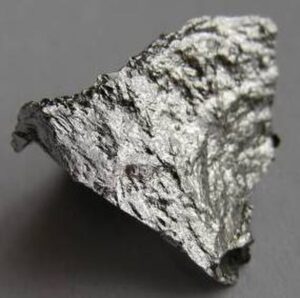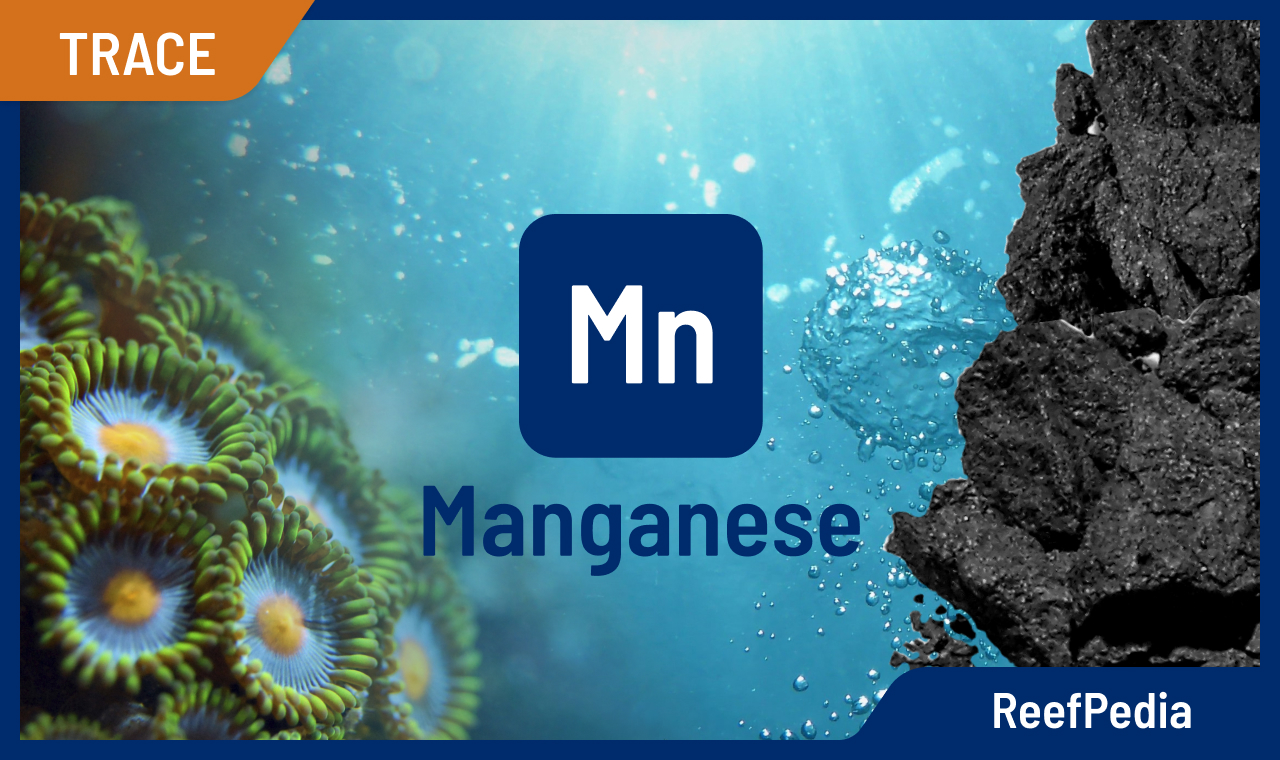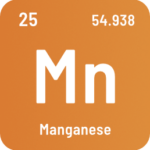 What is MANGANESE (Mn)?
What is MANGANESE (Mn)?
Manganese (Mn, Latin manganum) is an element belonging to the group of transition metals and is located in the seventh group of the periodic table. In its pure form it’s a silvery-grey metal with a bluish sheen. It’s found in small amounts in the Earth’s crust, mostly in the form of ores composed of its oxides, carbonates and silicates. The most important minerals containing manganese are pyrolusite, psylomelane, manganite, braunite, ausmanite, dialogite, rhodonite and bementite.
Manganese forms numerous chemical compounds in which it occurs on different oxidation levels, the most important of which are: +II, +III, +IV and +VII. The degree of oxidation of manganese is highly dependent on the pH of the environment in which it occurs. In an aquarium tank, the pH is kept at 8 (alkaline environment), and in this environment the stable manganese compounds are manganates (VI) such as K2MnO4 or permanganates (VII) such as KMnO4.
Importance of manganese in seawater
Manganese is of great biological importance as it’s a component of many enzymes. It is involved in photosynthesis and is also essential for corals to feed on.
It’s important to note that the amount of manganese in seawater that is necessary for animals to thrive is so low that it is often not detectable by the analytical methods used. This does not always mean that it’s not present in the water, simply that the detection limits of the equipment determine its detectability (LOD- Limit of Detection).
It is also worth knowing that manganese in seawater tends to precipitate as sediment, a process that is rapid. The optimum level of manganese, which belongs to the micronutrient group, in the marine aquarium is 0.1-3 µg/l. With this element, care must be taken not to exceed the recommended concentration levels.
Manganese is important as a micronutrient in seawater primarily in areas such as:
Coral colouration – manganese affects the red colouration of corals and can mitigate negative cellular effects caused by thermal stress.
Biological processes (enzymatic processes) – manganese is of great biological importance, being a component of many enzymes involved in various metabolic processes. It actively participates in the photosynthetic cycle, as well as in processes based on redox reactions (oxidation and reduction). In the nitrification cycle, it reduces nitrate (NO3–) to simpler nitrogen compounds.
Risks of excess manganese in seawater
 Low levels of manganese can slow or stunt growth in corals. Goniopora and Alveopora corals may also stop polyp properly. The lack of this element is also partly responsible for increased light sensitivity in LPS corals.
Low levels of manganese can slow or stunt growth in corals. Goniopora and Alveopora corals may also stop polyp properly. The lack of this element is also partly responsible for increased light sensitivity in LPS corals.
High manganese levels can negatively affect metabolism in corals. High levels of manganese increase the amount of difficult-to-solubilise manganese compounds that precipitate in seawater to form sediment.
How to protect the aquarium?
Check the manganese content regularly and keep it at the right level. We recommend that you maintain manganese at a level of 0.1- 3 μg/L, with the optimum value we recommend being 2 μg/L. Keeping manganese in seawater at the right level ensures healthy animals and beautiful colouration.
The most accurate and reliable method for determining manganese is ICP-OES analysis. The Inductively Coupled Plasma Optical Emission Spectrometry (ICP-OES) technique is the most accurate analytical method for analysing the elemental composition of seawater.
Indicators of abnormal manganese levels in marine aquariums
Very good indicators of proper manganese levels in seawater are Gonioporas, Montiporas and Alveoporas.
Deficiency:
- Poor skeletal growth
- Pale colours (especially the strong red colouration of Goniopora and Montipora species decreases)
- Retraction of polyps
- Increased sensitivity to light (especially LPS)
Excess:
- Darkening of coral tissue
- Increase in the amount of algae
Recommendations
In order to ensure that the manganese level in your aquarium is adequate, you should test it regularly and ensure that the level is correct.
If the manganese level is above 3 µg/l, we speak of an overdose. The most common reasons for exceeding the recommended manganese level are:
- salt,
- excessive doses of administered fluids,
- contaminated supplements,
- metal components in RO systems,
- pump impellers.
Find and eliminate the cause of the problem and lower the value of this parameter in the water. Perform up to 6 water changes. It is recommended to change about 15% of the aquarium water volume during each water change until the recommended value of this parameter is reached. The water prepared for the change must have the correct target salinity level. Use salts with the correct parameters and composition suitable for the ICP test.
If the manganese level is below 0.1 µg/l, we recommend using manganese-containing products to compensate. In order to ensure constant manganese levels in marine aquaria, we recommend systematic supplementation of this element depending on the coral population in your aquarium.
About author

Magdalena Metzler
Privately, I am a mother and a lover of nature and sport. My main interest is quantum chemistry, which hides a whole lot of unsolved mysteries and connections, which is extremely exciting from a scientific point of view.
In my scientific career, I have conducted international projects focused on innovative solutions for many branches of business, e.g. automotive, construction, and now, of course, marine aquaristics.
Working at Reef Factory gave me a passion for marine aquaristics, which I can develop every day, building a chemistry department and creating products that will help aquarists take care of tanks and ensure the highest safety of animals.
One of the most exciting memories of working at Reef Factory is the commissioning of the ICP-OES spectrometer, which analyzes the elemental composition of seawater. The method of analysis in ICP is based on an analytical technique, which is a combination of my passion for quantum chemistry and marine aquaristics.
I hope you find my articles on ReefPedia interesting and helpful! Happy reading :))
Magda


 What is MANGANESE (Mn)?
What is MANGANESE (Mn)?